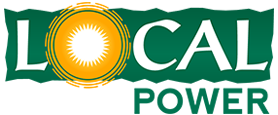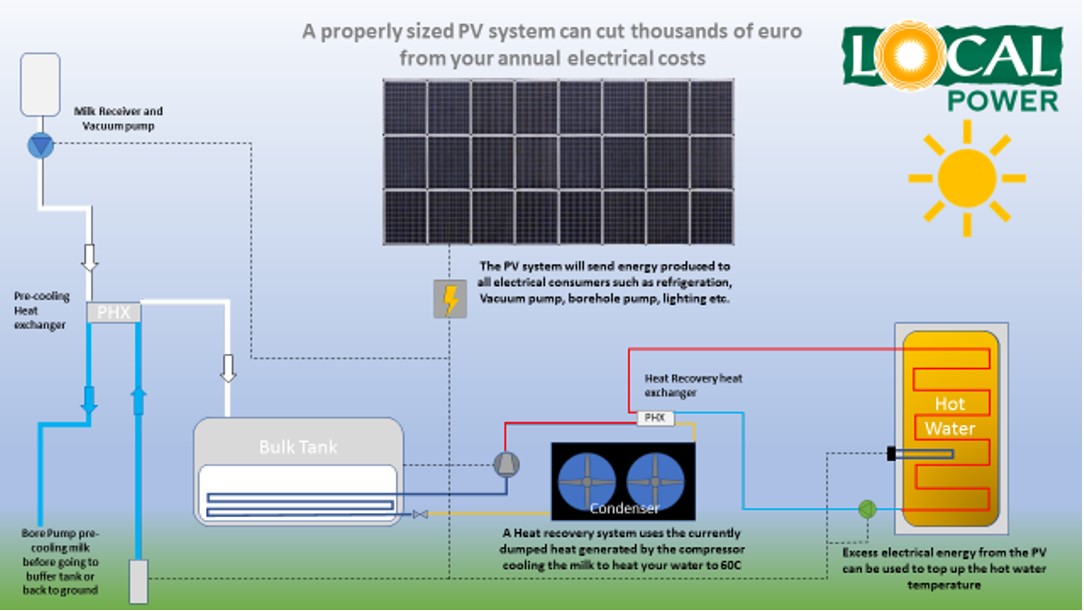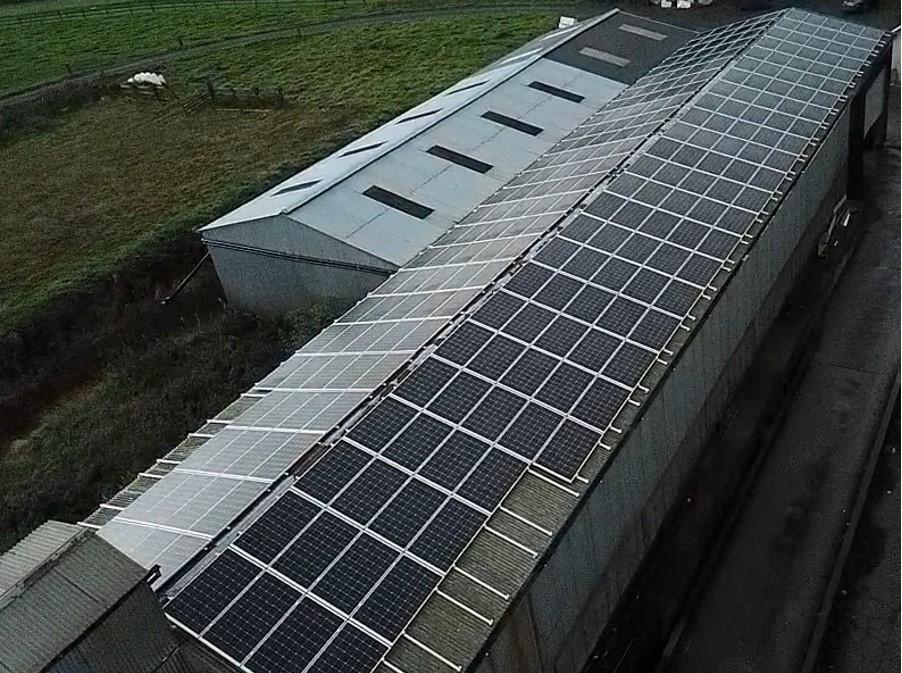“It’s not the strongest of the species that survives, nor the most intelligent, but the one most responsive to change” – a quote from Charles Darwin made over 150 years ago that is as relevant today, if not more so, especially to the farming and agri-business sector.
As a race, many of us don’t like change but a very wise and successful farmer once said: “If you keep doing the same thing every day don’t expect a different result.” So, change is a must to develop and succeed in this ever more competitive and global world.
Energy, heat and transport
The changes that are happening in the energy, heat and transport sectors are amazing and much of this change is being driven by incentives initially but in the main by economics.
The deployment of solar PV as a renewable technology is doubling across the world every year; wind turbines are up to 20 times more powerful than a decade ago; electric cars are becoming a practical and economic reality; and not a sod of turf or gallon of kerosene will ever be used in most new homes built today.
This pace of change is accelerating the creation of new businesses and employment opportunities for the next generation. An example of one such business is Local Power Ltd, who specialises in helping farms and businesses reduce their energy costs and carbon emissions.
Energy costs in the farming and agri-business sector are a significant and growing cost and technologies such as solar PV, heat pumps and heat recovery have a very significant role to play in reducing that cost and improving cost efficiencies on farm and businesses going forward.
For example, once sized correctly, dairy farmers can reduce their electricity costs by as much as 60% by harvesting the heat generated by the compressors cooling milk to heat water and then using solar PV to generate as much of the electricity possible to power the farm and/or home.
Pig, poultry, mushroom and horticultural farmers have a significant and constant demand for electricity and heat and, with the incentives in place, can reduce their bought-in energy costs by as much as 50% and secure a payback of significantly less than five years.
That is the type of change that is good for the pocket and good for the sustainability of your business and our society.
Reasonable grants
Reasonable grants are available to assist in the transition to a low carbon environment. The Targeted Agricultural Modernisation Scheme (TAMS) grant for pigs and poultry is 40% and application terms acceptable and workable.
However, the new TAMS for dairy, beef and tillage is too restrictive and very limited in relation to meeting the requirements on many farms. This scheme needs to be urgently reviewed if anywhere near the allocated €10 million is to be used up.
An alternative grant scheme is a 30% Better Energy Communities (BEC) grant provided by the Sustainable Energy Authority of Ireland (SEAI) which is a straightforward and workable scheme for many farmers.
BEC grant applications for 2020 opened in November and will close by the end of January 2020, so anyone hoping to avail of this scheme needs to get in touch sooner rather than later.
One other very useful incentive for farmers investing in solar PV is that they can write off 100% of the investment in the year of install and at the marginal tax rate. This alone can more than halve the net cost of the system install.
Do your research
On the issue of planning requirements for solar PV, Local Power Ltd is very hopeful that the review, soon to be finalised, of the exclusions for solar PV will result in no planning being required for most on-farm installs.
Finally, in relation to the technology options, don’t be fooled and do your research to make sure that your investment will deliver on expectations for decades to come.
For example, most panel offerings are 10 years’ product and 25-year performance warranties based on a maximum annual degradation of 0.7%.
How can you claim a 25-year performance warranty if the 10-year product warranty has run out?
Local Power Ltd supplies a solar PV panel option that is manufactured in Germany and comes with a 30-year product and a 30-year performance warranty based on a maximum annual degradation of 0.345%.
That is a valuable guarantee, especially from a company owned by the BMW family that ensures over 87% generation after 30 years.
Find out more
For more information on solar PV, you can email: [email protected]; or, additionally, you can phone: 01-825-0263; or go online at: www.localpower.ie. Click here for more information




